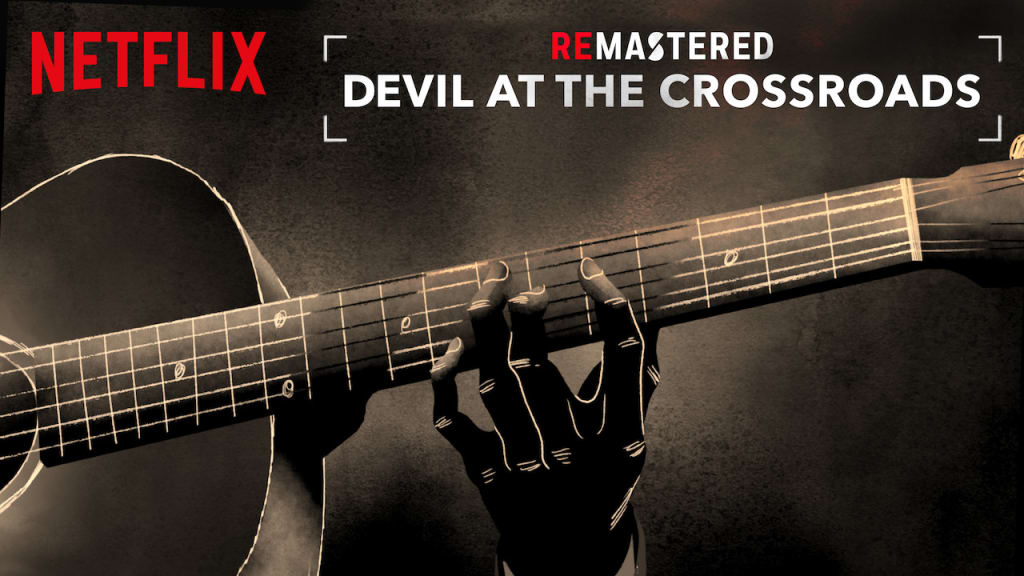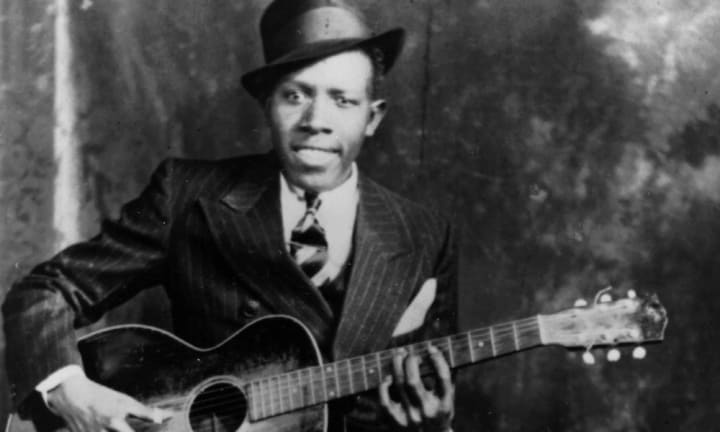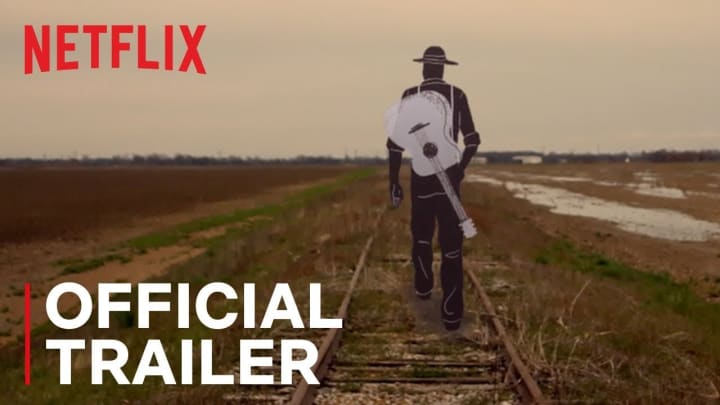'Devil at the Crossroads' - (Netflix)
I watch so as you may not have to.

Even though slavery was abolished in the United States in 1865, the effects and influence of it still persisted over the next hundred years and beyond. Though slavery was abolished, many opposed the freedom of black people, some violently so, giving rise to the Ku Klux Klan, a pro-white resistance group formed in the deep South in 1866.
Though legally speaking, blacks were equal to their white counterparts, in the southern states it was still dangerous for black people, who mostly did the same work they had done as slaves; cotton picking, housework, field work and general labour, for a lowly wage.
For those blacks, predominantly men, who did not want to be wage slaves, there were few options. The more entrepreneurial started small businesses, making money providing some sort of service for the community. A few became musicians, music always having been a strong balm against the harsh realities of life for the black man and woman.
The blues, the melancholy, sparse rhythm of oppressed blacks of the south, with lyrics of bittersweet love, death and life’s hardships, often accompanied by a guitar or a mouth organ, was, along with the aforementioned hardships of the time, the backdrop for the excellent documentary on Robert Leroy Johnson on Netflix, Devil At The Crossroads.
Robert Johnson died at twenty-seven years of age back in 1938, having been poisoned. Such was his influence on the blues, specifically blues guitar, that many credit him as having influenced most of the musical styles through the twentieth century. Besides the fact that he died at such a young age and spent most of his life in Mississippi, the facts of his life are scarcely documented.
He only recorded twenty-nine tracks in his lifetime, barely gaining recognition outside of Mississippi. Most of his history is oral, somewhat like when an old person tells you about seeing George Best play football or Sugar Ray Robinson box or Nureyev dance, they relate the stories with such passion, such conviction, it makes you feel as though you missed something.
Written by Jeff and Michael Zimbalist, Devil At The Crossroads explores the influence and myth surrounding Johnson. Interviewing his grandson and people who knew stories about him. What is apparent is how much the music means to the people who get interviewed.
The most interesting aspect of his story and the thing that gives the documentary its title is how Johnson came to be such an extraordinary guitar player. Another blues player of the time, Son House, was an established musician of the time. Several years older than Johnson, the younger musician used to follow House around and ask to play. According to House, Johnson was not very good. Johnson disappeared, returning a year and a half later.

Robert Leroy Johnson
When Johnson returned, to House’s amazement, he was not only improved, he was brilliant. No one could believe that he could improve to such an extent in such a short space of time.
The history of poor people, both black and white, has always been tinged with stories of dark magic and religion as a way to define things that they could not readily explain. In Johnson’s case, the vast improvement in his guitar talent was said to have come from a deal he made with the devil at the crossroads.
His grandson has a more plausible explanation. He believes that he had returned to the town of his birth and met Ike Zimmerman, a guitarist considered one of the best of the time in Mississippi. Ike would become Johnson’s mentor and they would play the guitar in the graveyard. Ike taught Johnson all that he knew about guitar playing and, by all accounts, he was a keen and brilliant student.
Outside of his music, Johnson’s life was that of an itinerant musician, travelling around the deep south. His love of playing the blues, alienated him from many older blacks because they considered it the devil’s music. Many black people were religious, the thought of associating with a blues musician a definite non-starter for many of them.
He lost two wives to childbirth, the first losing the child as well. His second wife fathered a son, who was brought up by her parents. They never allowed Johnson to see the boy, their strong religious beliefs opposed to his lifestyle.
Devil At The Crossroads is an interesting and passionate documentary, mixing myth and facts. At only forty-eight minutes long, it is an easy and captivating watch, recounting a story not widely known of an interesting man whose influence on music is still evident to this day. For anyone into music, this is a must see.

About the Creator
Q-ell Betton
I write stuff. A lot.






Comments
There are no comments for this story
Be the first to respond and start the conversation.